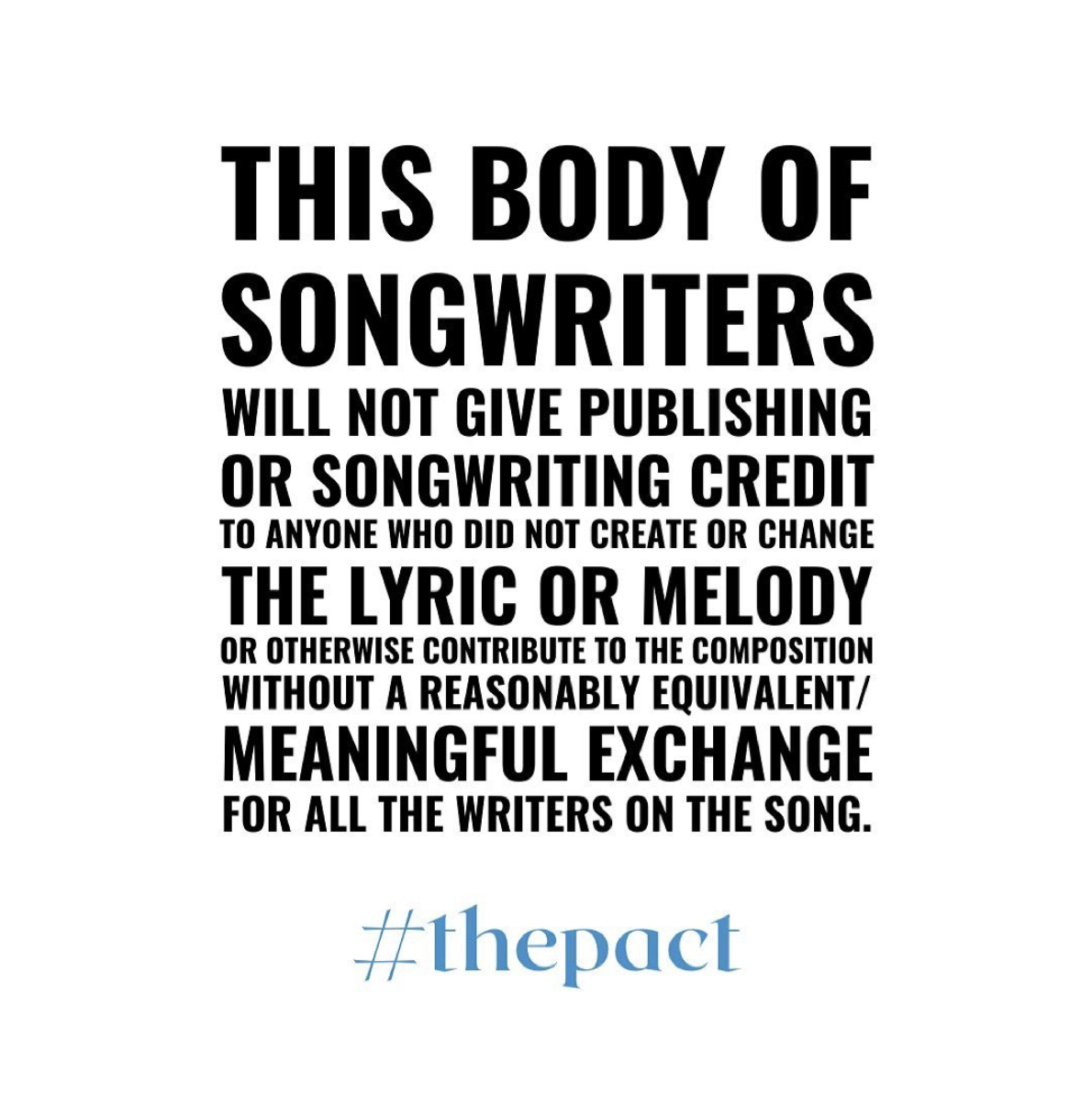Top songwriters for artists including Ariana Grande demand fair credit for writing hits
Image Credit: The Pact
Why should artists get paid for songs they didn’t even write? The Pact, a group of major US songwriters, is fighting back.
Making a song a hit takes an army. So shouldn’t everyone involved get fair credit? Songwriters are taking a stand against the culture of “bullying” that leads to artists getting a large credit on songs they didn’t actually write, and against what they see as the subsequent erosion of the publishing royalties which songwriters rely upon for income.
A group calling itself The Pact first posted anonymously on Instagram, calling for action. Now an open letter has been signed by US songwriters including Victoria Monét, co-writer of various Ariana Grande hits. The Pact’s mission statement proclaims:
“This body of songwriters will not give publishing or songwriting credit to anyone who did not create or change the lyric or melody or otherwise contribute to the composition without a reasonably equivalent/meaningful exchange for all the writers on the song.”
Mission statement of The Pact
In the letter the initially anonymous group lay out their reasons for taking a stand. It’s time to speak up, they say, in response to the artists that demand publishing on songs that they in fact didn’t have a hand in writing; often able to happen because “the artist and/or their representation abuse leverage, use bully tactics and threats, and prey upon writers who may choose to give up some of their assets rather than lose the opportunity completely.”
Songwriters claim they’re told to accept that a big artist recording their song means that the track is guaranteed to be a hit, and that therefore it’s fair to give the artist a writing credit because of the power of their brand. The unspoken agreement is it’s better for writers to have a smaller credit on a major track than a larger one on a song that doesn’t chart.
The issue is that songwriters are almost entirely dependent on copyright income, as unlike artists they get no revenue from merchandise, tours or gigs. That big artist who gains an unearned writing credit is consequently taking earnings from the songwriter who has no alternative source of income.
The songwriters aren’t suggesting that the artist isn’t important – they’re smarter than that, recognising that big names sell records, and also the obvious value of the producers, artists and record labels who put their own stamp on the song and work hard to release and promote it. The Pact is asking for recognition that the other parties involved get to enjoy the benefits of the recording copyright, and ask that the writers should be allowed to at least get a better slither of publishing copyright out of the deal.
Without songwriters there would be no song in the first place, and debates of how fair the pie of a song is sliced have been raging over the past six months, with the UK government launching an inquiry into the economics of music streaming and taking evidence from organisations like the Ivors Academy.
Perhaps sensing the disquiet, Apple Music and Spotify have lately sought to shine a spotlight on songwriters. Spotify’s Songwriter’s Hub acknowledges the oft-forgotten writers of hits, whilst the launch of Noteable offers tools for songwriters. Apple Music’s Behind the Songs hub meanwhile gives an insight into the behind-the-scenes work from songwriters and session musicians, hoping to connect listeners to the real writers of their favourite song.
